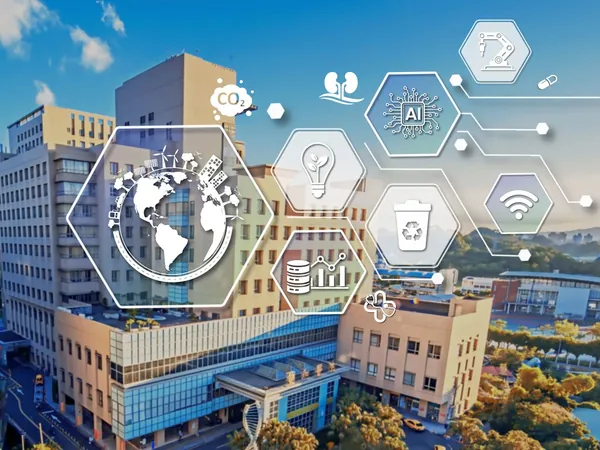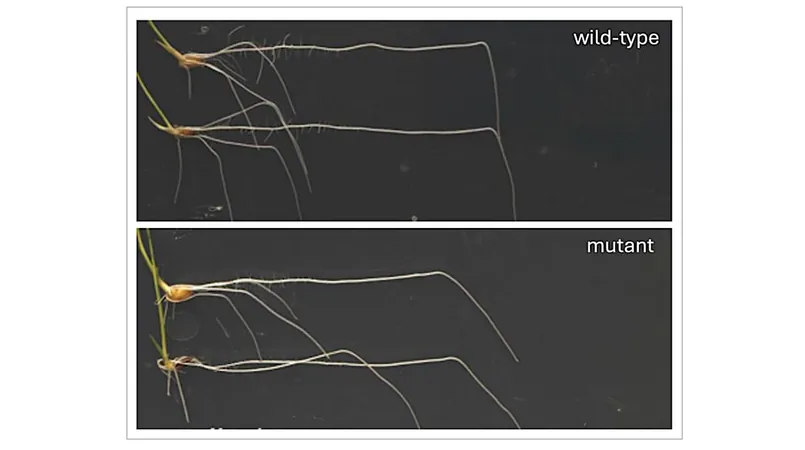
Transforming Kidney Care: Taiwan's Ambitious Net-Zero Emissions Plan
2025-09-22
Author: Olivia
Introduction
In an inspiring stride towards sustainability, Taiwan is poised to revolutionize kidney care by establishing a net-zero emissions kidney care center. This innovative approach is part of a broader global movement aligning with the United Nations' goal of achieving net-zero carbon emissions by 2050.
The Urgency of Green Nephrology
Kidney care, particularly through methods like hemodialysis, is notoriously carbon-intensive, heavily relying on energy, water, and medical supplies. With the climate crisis affecting healthcare delivery, green nephrology offers a way to reduce the environmental impact while maintaining high standards of patient care.
Global Trends in Sustainable Healthcare
Countries worldwide recognize the healthcare sector's significant role in combatting climate change. The UK's pioneering 'Greener NHS' initiative and the establishment of the US Office of Climate Change and Health Equity exemplify how healthcare systems can embrace sustainability.
Taiwan's Commitments and Challenges
Following its commitment to net-zero emissions by 2050, Taiwan's health sector is gradually implementing strategies that prioritize sustainability without compromising care quality. With a burgeoning aging population leading to rising dialysis rates, the importance of adopting green practices becomes paramount. Current healthcare costs for chronic kidney disease amount to approximately NT $53.3 billion annually, highlighting the economic impetus behind this transition.
Best Practices in Sustainable Kidney Care
Research shows that the carbon footprints of dialysis patients can be significantly high, with emissions owing to the resources used in treatments. Countries like the UK have quantified these emissions effectively, leading to targeted strategies for reduction. For instance, Taiwan can learn from global successes in initiating waste management and resource conservation practices to minimize the environmental impact.
The Vision for Taiwan's Net-Zero Emissions Kidney Care Center
The proposed kidney care center in Taipei is a model blending environmental sustainability into healthcare operations. It aims to showcase that green nephrology is both feasible and beneficial, demonstrating cost savings and improved patient outcomes alongside reduced emissions.
Strategic Pillars of the Model
This initiative revolves around several key pillars: digital transformation, low-carbon healthcare strategies, circular economy principles, and preventive medicine. By harnessing digital technologies, the center can streamline processes and improve efficiency—reducing both cost and emissions.
Engaging the Community and Healthcare Professionals
For successful implementation, active engagement of healthcare professionals and community members is vital. This will involve training staff in sustainable practices and educating patients on minimizing their environmental impact.
Conclusion: Building a Sustainable Future
As nations race towards 2050's net-zero goal, Taiwan’s ambitious kidney care model demonstrates how healthcare systems can embrace sustainability while delivering quality care. By integrating innovative practices and addressing climate change, Taiwan is positioned to lead the way in sustainable healthcare.









 Brasil (PT)
Brasil (PT)
 Canada (EN)
Canada (EN)
 Chile (ES)
Chile (ES)
 Česko (CS)
Česko (CS)
 대한민국 (KO)
대한민국 (KO)
 España (ES)
España (ES)
 France (FR)
France (FR)
 Hong Kong (EN)
Hong Kong (EN)
 Italia (IT)
Italia (IT)
 日本 (JA)
日本 (JA)
 Magyarország (HU)
Magyarország (HU)
 Norge (NO)
Norge (NO)
 Polska (PL)
Polska (PL)
 Schweiz (DE)
Schweiz (DE)
 Singapore (EN)
Singapore (EN)
 Sverige (SV)
Sverige (SV)
 Suomi (FI)
Suomi (FI)
 Türkiye (TR)
Türkiye (TR)
 الإمارات العربية المتحدة (AR)
الإمارات العربية المتحدة (AR)